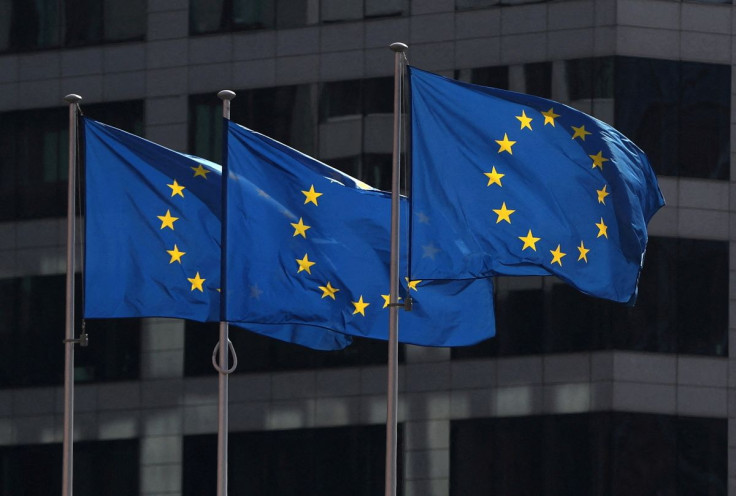Euro Zone To Back Broadly Neutral, But Flexible 2023 Fiscal Stance Amid Ukraine War

Euro zone finance ministers are likely to endorse on Monday the European Commission's view that fiscal policy should move from supportive to neutral next year, but agree they must be ready with more cash should the war in Ukraine make it necessary.
Finance ministers from the 19 countries sharing the euro are meeting on Monday to discuss their fiscal stance for 2023, as Russia's invasion of Ukraine and Western sanctions imposed in response raise risks to EU economic growth this year.
"This impact will ... be serious because of the soaring prices of commodities, the consequences of inflation on some raw materials and also because of the fiscal costs ... for energy prices and the refugee crisis," European Economic Commissioner Paolo Gentiloni said on entering the ministers' meeting.
"So we should be prepared in this uncertain situation to have our economic policies well coordinated and agile. I am still convinced that if we react strongly and united, we can cushion the impact of the war on our economies," he said.
The Commission, the EU's executive, recommended on March 2 that EU governments should move to a neutral fiscal stance next year from a supportive stance now, but be ready to adapt quickly if the Ukraine crisis produces new challenges.
EU government borrowing limits are likely to stay suspended in 2023, the Commission said, but high debt countries such as Italy and Greece should still focus on tightening fiscal policy, while low debt ones focus more on investment.
WAR IN UKRAINE WILL SLOW EURO ZONE GROWTH
A senior euro zone official said that the war in Ukraine would have a "serious but bearable" impact on the euro zone.
The European Central Bank forecast last week that euro zone growth will be 0.5 percentage points slower this year than previously expected because of the war in Ukraine, but still come in at 3.7%, and at 2.8% in 2023.
Inflation, however, is set to average 5.1% in 2022, well above the bank's target of 2.0%, falling to 2.1% in 2023, the ECB forecast.
Gentiloni, who will publish his own updated forecasts in May, said it was too soon to give any serious estimates.
"If you only estimate the direct impact of energy prices or supply chain disruption, or inflation, you can have numbers that apparently could appear moderate numbers," he said.
"But a combination of these ... and the risk of a confidence crisis among investors and consumers ... and the duration of this war are all elements that we can't calculate with our models."
BANKING UNION
Finance ministers from the whole 27-country EU will discuss sanctions imposed on Russia on Tuesday, the senior euro zone official said.
On Monday evening they will discuss a plan to complete the EU's banking union, which is still missing a European deposit insurance scheme (EDIS).
That will require government agreements on making banks diversify their sovereign bond portfolios to lower the risks they are taking with exposure to a single government, and on cross-border integration and diversification of banks.
The chairman of euro zone finance ministers Paschal Donohoe is likely to present an initial plan for reaching a deal on EDIS that will foresee several stages at which more risk-sharing via a deposit scheme would be matched by more risk reduction, the official said, without elaborating.
After feedback from ministers to that, a fully-fledged plan of how to arrive at EDIS could be ready in April and a deal could be reached in June, the official said - but he cautioned even that would not be the end of the discussion.
"It's not yet going to be a detailed agreement on all elements of the banking union," the official said.
"It's going to be political commitment of member states to a certain set of broad elements of the banking union and a number of principles and process that will then guide the legislative work that will ensue."
© Copyright Thomson Reuters 2024. All rights reserved.





















